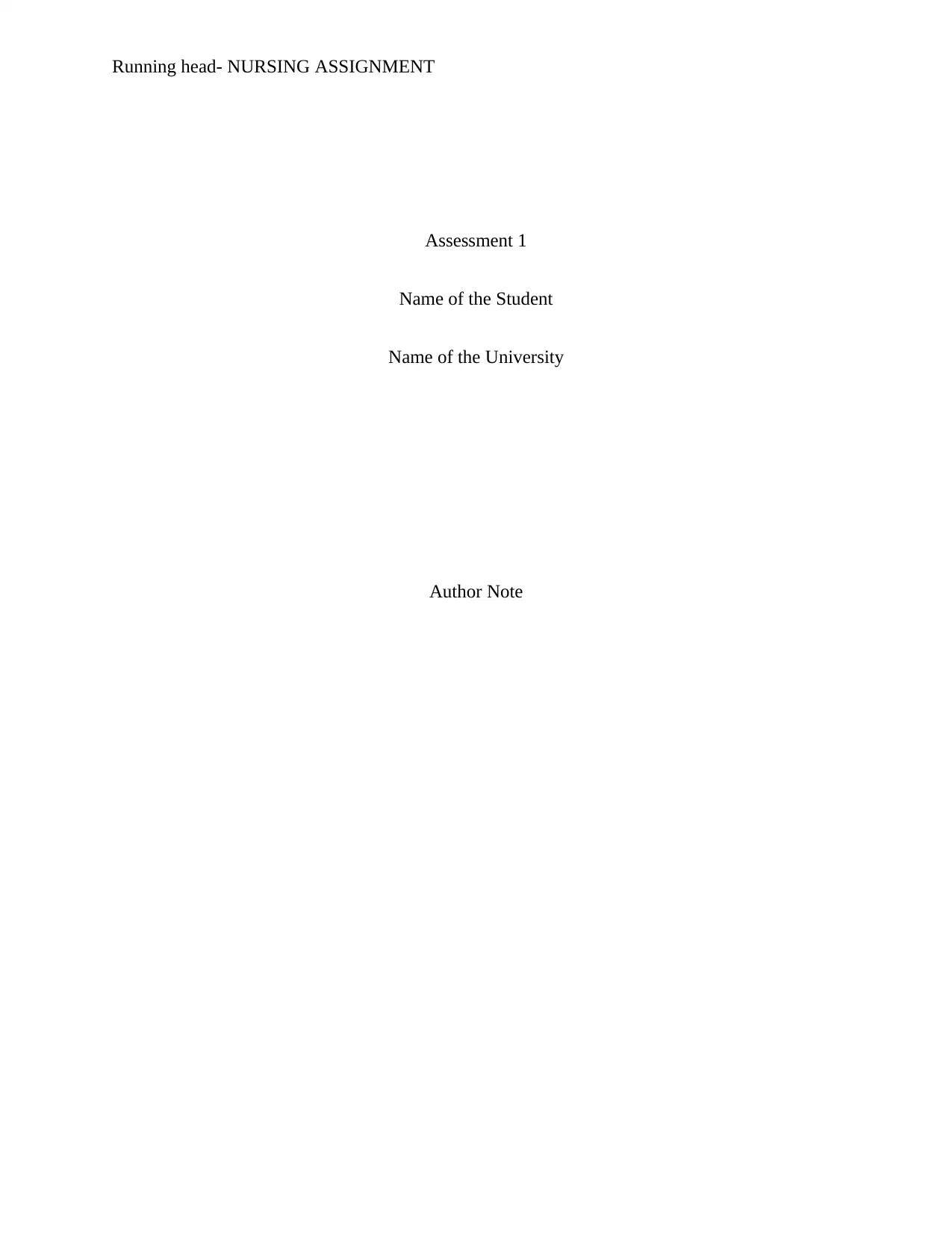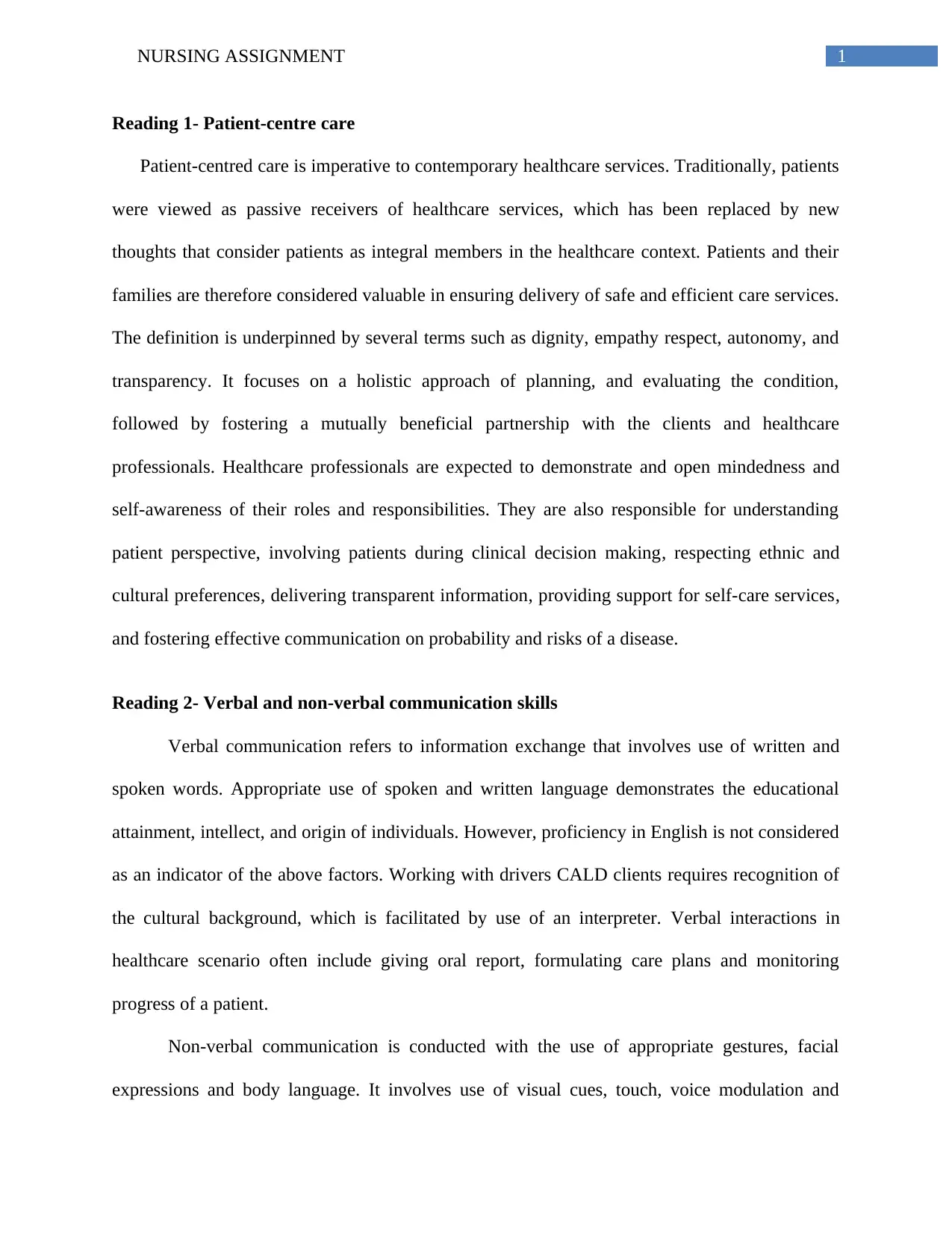Nursing Assignment: Patient Care, Communication, and Documentation
VerifiedAdded on 2021/04/17
|3
|536
|28
Report
AI Summary
This report delves into crucial aspects of nursing practice, including patient-centered care, communication, and documentation. The assignment explores the importance of patient-centered care, emphasizing dignity, empathy, respect, and autonomy. It also examines verbal and non-verbal communication skills, highlighting the significance of cultural sensitivity and effective interactions with diverse patient populations, including the use of interpreters when necessary. Furthermore, the report discusses the importance of accurate documentation, including electronic and written records, and the role of management information systems (MIS) in healthcare. The report emphasizes the necessity of maintaining updated and organized patient records to ensure cost-efficient care and reduce clinical errors, adhering to organizational policies on record maintenance. This comprehensive analysis provides a strong foundation for understanding and applying these key concepts in nursing practice.
1 out of 3










![[object Object]](/_next/static/media/star-bottom.7253800d.svg)